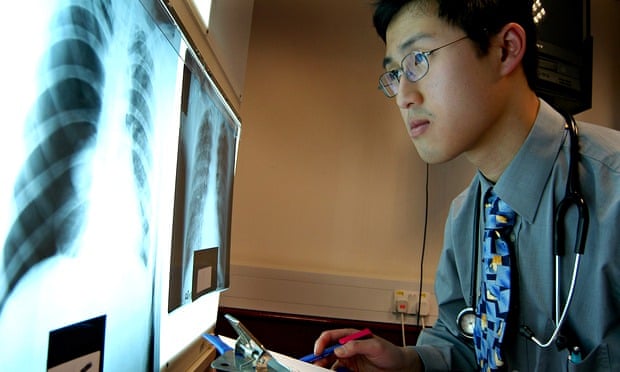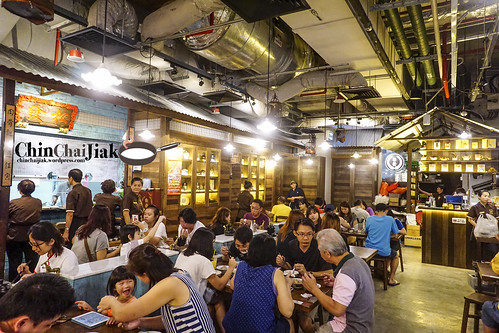Medicine is a subject that requires the practitioner to have a passion to heal the sick and save lives. Historically, doctors take the Hippocratic oath to uphold their calling and high ethical standards.
Many of our local students aspire to study medicine because of its noble calling but there are very high bars for entry into our local medical schools and medical schools admit students based on their stellar academic results and not so much on their disposition to practice medicine.
Each year, our intake of medical students is less than 300 and this is hardly enough to meet increasing demands. A great number of our students with the right aptitude for medicine are forced to leave for overseas medical schools, spending huge sums of money to earn their medical degrees. Yet, instead of expanding the local intake, foreigners are recruited to make up the numbers. This scene is repeated in the nursing line which has become heavily reliant on foreign nurses (Click
HERE).

There is a need to seriously review our policies and to expand our intake of medical students to allow more of our own students with the right aptitude but less stellar academic results to train and become medical practitioners. From a social perspective, the more doctors and nurses there are, the more our aged and sick will have ready access to medical attention. An increase in the supply of doctors and nurses, and medical practitioners in specialisations that are in growing demand, will go towards lowering overall medical costs and waiting time.
Government polyclinics in Singapore fulfill the primary healthcare role. These are managed by the National Healthcare Group and Singapore Healthcare Services which were formed in 2000 (Click
HERE). They provide subsidised outpatient medical care, health screening and pharmacy services. However, the percentage of government polyclinics vis-a-vis private clinics stands at only 20%. This is certainly less than ideal.

Currently, government polyclinics open only from 8 a.m. to 4 p.m. and are closed on Sundays and Public Holidays. It is perhaps time to look at operating government polyclinics on a 24/7 basis to cater to the needs of an expanding ageing population to help bring down the costs of healthcare. Consultations at polyclinics should be free for all elderly citizens above 65 years old and for those younger, the consultation fee could be fixed as low as possible. Drugs for coughs and colds and other common ailments should be provided free.
Prevention is better than cure and steps should be taken to provide early detection and treatment of diseases. However, breast screenings, pap smears and other health screenings are getting more and more costly and they deter people from going for their yearly check-ups. There can be a national health screening programme which charges a nominal fee for our citizens to encourage them to take care of their own health. Early treatments will also be less costly and increase the chances of full recovery. As it is often said that our people are the only natural resource that we have, it is surely worth the investment to ensure that they are healthy and strong.

The Community Health Assist Scheme (CHAS) provides subsidies for citizens from lower- and middle-income households for medical and dental care in participating clinics. Presently, applicants are means-tested by taking their total household income divided by the total number of family members living together. The calculated income must not exceed $1,800. This income ceiling should be raised to reflect the rising costs of living. Further, the criteria for those without income to not possess a home with an annual value of not more than $21,000 should be reviewed along with any increase in annual values.
There are also caps on the subsidies for Blue, Orange and Pioneer Generation CHAS cardholders pertaining to chronic conditions. Whilst the caps ($360 and $540 for simple and complex conditions as defined) are published, it would be useful if the balance of the cap remaining provided to the cardholder after every deduction. These cards are currently valid for one year periods and cardholders must apply for renewal. One suggestion is to provide for automatic renewal to save trouble for these cardholders who are generally old and illiterate.

Rising medical costs have led to various healthcare policies like the Pioneer Generation Package ("PGP") for elderly folks, whose need for financial assistance to reduce their medical costs was neglected for quite a long time. It is estimated that 450,000 Singaporeans, whom the government identifies as the pioneer generation, will benefit.
Although this is a rather artificial categorization and has led to unhappiness from those who miss the cut-off age, the PGP package serves to help a group of elderly Singaporeans who are 65 and above w.e.f. 31 December 2014. Since the idea behind this package is to show appreciation for their contributions, the PGP ought to cover all their medical costs of the "pioneers" without requiring any of them to make any balance payment.



















